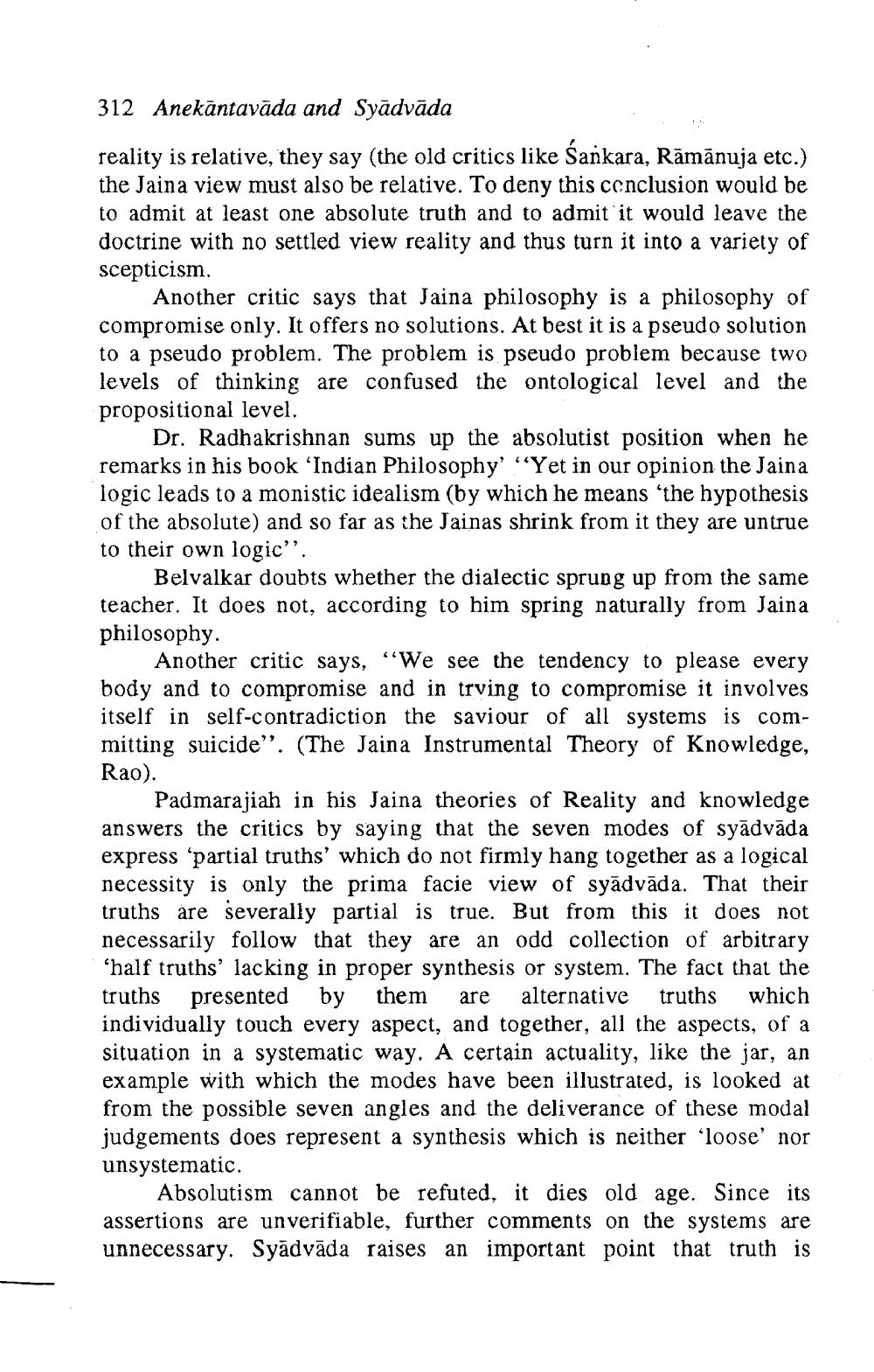________________
312 Anekāntavāda and Syādvāda
reality is relative, they say (the old critics like Sankara, Rāmānuja etc.) the Jaina view must also be relative. To deny this conclusion would be to admit at least one absolute truth and to admit it would leave the doctrine with no settled view reality and thus turn it into a variety of scepticism.
Another critic says that Jaina philosophy is a philosophy of compromise only. It offers no solutions. At best it is a pseudo solution to a pseudo problem. The problem is pseudo problem because two levels of thinking are confused the ontological level and the propositional level.
Dr. Radhakrishnan sums up the absolutist position when he remarks in his book 'Indian Philosophy' “Yet in our opinion the Jaina logic leads to a monistic idealism (by which he means 'the hypothesis of the absolute) and so far as the Jainas shrink from it they are untrue to their own logic''.
Belvalkar doubts whether the dialectic sprung up from the same teacher. It does not, according to him spring naturally from Jaina philosophy.
Another critic says, “We see the tendency to please every body and to compromise and in trving to compromise it involves itself in self-contradiction the saviour of all systems is committing suicide". (The Jaina Instrumental Theory of Knowledge, Rao).
Padmarajiah in his Jaina theories of Reality and knowledge answers the critics by saying that the seven modes of syādvāda express 'partial truths' which do not firmly hang together as a logical necessity is only the prima facie view of syādvāda. That their truths are severally partial is true. But from this it does not necessarily follow that they are an odd collection of arbitrary ‘half truths' lacking in proper synthesis or system. The fact that the truths presented by them are alternative truths which individually touch every aspect, and together, all the aspects, of a situation in a systematic way. A certain actuality, like the jar, an example with which the modes have been illustrated, is looked at from the possible seven angles and the deliverance of these modal judgements does represent a synthesis which is neither “loose' nor unsystematic
Absolutism cannot be refuted, it dies old age. Since its assertions are unverifiable, further comments on the systems are unnecessary. Syādvāda raises an important point that truth is




